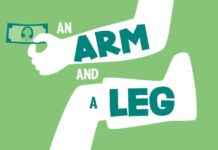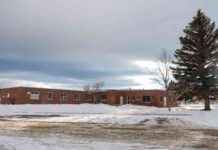Boston Community Left Reeling After Tragic Barbershop Killing
In a bustling neighborhood in the heart of Dorchester, Boston, tragedy struck on a warm Labor Day afternoon. Ateiya Sowers-Hassell, a stylist at Salvaged Roots hair salon and spa, was in the midst of her work routine when the tranquility was shattered by the sound of gunshots. The peaceful ambiance of the salon was shattered as chaos erupted next door at Exclusive Barbershop. What followed was a harrowing scene that left the community traumatized and searching for answers.
Unraveling the Impact of Gun Violence
For many residents of Dorchester, barbershops and salons like Salvaged Roots are more than just places for grooming—they are sanctuaries where people come together to connect, share stories, and find solace. The brutal violation of these safe spaces by the senseless act of gun violence reverberated through the community, leaving a deep scar that would take time to heal.
The tragic killing of 20-year-old Elijah Clunie not only claimed a young life but also unleashed a wave of trauma that rippled through the neighborhood. Studies have shown that exposure to gun violence can have far-reaching effects on mental health, particularly among children and young adults. The emotional toll of such incidents can be profound, leading to increased levels of anxiety, depression, and a sense of vulnerability.
Daniel Webster, a renowned expert on gun violence, emphasized that the impact of such events goes beyond the immediate physical harm caused. The fear and trauma that linger in the aftermath can have lasting consequences on individuals and businesses in the affected community. In the case of Four Corners, a neighborhood already grappling with economic challenges and limited resources, the emotional wounds inflicted by Clunie’s killing run deep.
Seeking Healing in the Aftermath
Shanita Clarke, the owner of Salvaged Roots, found herself at the center of a tragedy she never anticipated. As she rushed to the salon upon hearing the news of the shooting, Clarke was confronted with the stark reality of violence in her own backyard. The salon, which she had envisioned as a haven for the community, became a site of sorrow and reflection in the wake of Clunie’s death.
The details of the shooting, as recounted in a case statement from Massachusetts, paint a chilling picture of the events that unfolded at Exclusive Barbershop. The alleged perpetrator, Diamond Jose Brito, carried out a brazen act of violence that shattered the lives of those present in the shop that day. While Brito awaits trial and maintains his innocence, the scars left by his actions continue to haunt those who witnessed the tragedy.
Boston City Councilor Brian Worrell emphasized the urgent need for investment and support in neighborhoods like Four Corners. The community, he argued, must be given the tools and resources to thrive, rather than merely survive. The trauma of gun violence, he noted, cannot be addressed in isolation but requires a holistic approach that addresses the root causes of violence and instability.
As the residents of Dorchester grapple with the aftermath of Clunie’s killing, the road to healing remains uncertain. For individuals like Ateiya Sowers-Hassell, who continue to work and live in the shadow of the tragedy, the path to recovery is fraught with challenges. While the outpouring of support and resources has offered some relief, the underlying question of how to prevent such events from recurring looms large.
As the community comes to terms with the trauma of the past, there is a collective sense of resilience and determination to rebuild what was lost. The echoes of gun violence may linger, but the spirit of Dorchester endures, united in its quest for healing and justice.

















